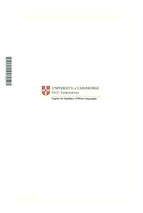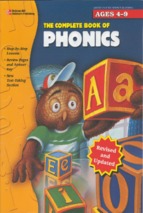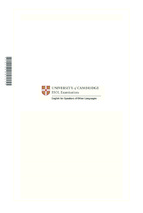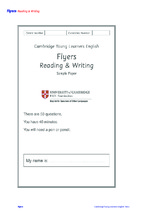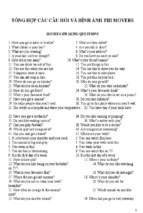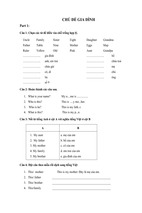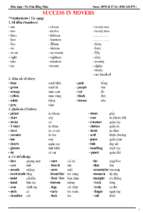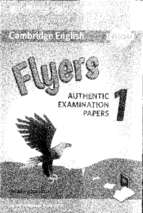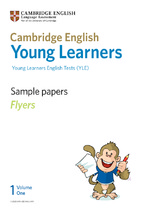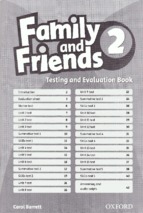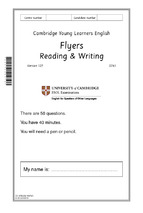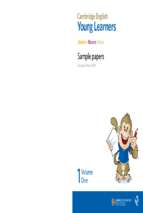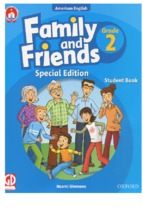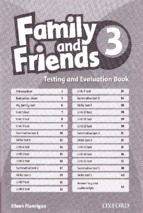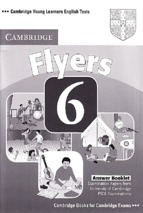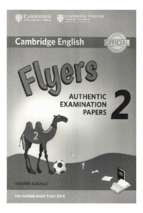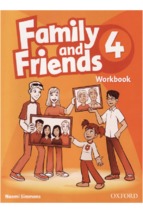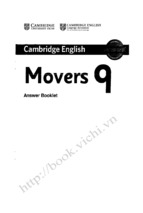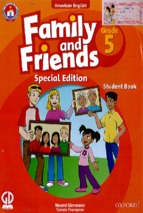Publishedby
Pearson Longman Asia ELT
20lF Cornwall House
Taikoo Place
979King'sRoad
QuarryBay
Hong Kong
fax +85228569578
email:
[email protected]
www.longman.com
and Associated Companies throughout the world.
@PearsonEducationAsia Limited 2007
All rights reserved;no part of this publication may be reproduced, stored in a retrieval system, or transmitted in any form
or bylny -"ans, electionic,mechanical,photocopying,recording,or otherwisewithout the prior written permissionof
the Publishers.
First published20OT
Reprinted2007(twice)
Producedby PearsonEducationAsia Limited, Hong Kong
CTPS/03
ISBN-I3: 978-962-00-5920-9
ISBN-10:962-00-5920-4
Publisher:Simon Campbell
SeniorEditor: Howard Cheung
Editor: GeorgeWells
Designers:JunkoFunaki,Tonic Ng
Illustrators:Balic Choy,BerndWong
Audio Production:David Popeand SkyProductions
For permission to use copyrighted images,we would like to thark @ Eleanor Bentall/Corbis (pp. 5 TL, I1), @ todi Hilton/Corbis (pp. 5 BR' 2l B)'
@ l o i e F u s t e R a g a / C o r b i i ( p . 1 7 B ) , O s t u a r t w e s t m o r l a n d / C o r b i s ( p . 1 8 B ) , @ A n n a P e i s l / z e f a l C o r b i s ( p . 3 9 ) , @ T o m S t e w a r t / C o r b i s ( p p4 0 , B B B ) '
@ P e t e r M o u n t a i n / W a r n e r B r o s / B u r e a u L . A . C o l l e c t i o n / C o r b i s ( p . 4 5 ) , @ E m e l y / z e f a l C o r b i s5
( p3 ) , @ L W A - D a n n T a r d i f / C o r b i s ( p6 3 T ) , @ C h r i s
(p 90).
Jones/Corbis (p 68 B), @ Simon Marcus/Corbis (p. Bl B), @ Reed Kaestner/Corbis (p. 82) and @ Gabe Palmer/Corbis
Acknowledgements
The Boost!Speakingcomponent is dedicatedto some key people who have been instrumental in helping me grow as an
EFL professibnal,nimelyGordon Lewis,JakeKimball and AndrewWright. I'd alsolike to thank the many colleaguesI've
enjoyeddiscussingYLand Teenagereducationalissueswith through KoreaTESOLand the IATEFLYoungLearnersand
TeenagersSpecialInterestGroup.
JasonRenshaw
The Publisherswould alsolike to thank the following teachersfor their suggestionsand comments on this course:
TaraCameron,RosanneCerello,Nancy Chan, ChangLi Ping,Ioy Chao,JessieChen,JosephineChen, ChiangYing-hsueh,
ClaireCho, Cindy Chuang,Linda Chuang,Chueh Shiu-wen,Mark de Boer,Mieko Hayashida,Diana Ho, Lulu Hsu,
Eunicefung, Hye Ri Kim, JakeKimball, JosieLai, Carol Lee,ElaineLee,Melody Lee,PeggyLi, EstherLim, Moon JeongLim,
Iasmin tin, trlaitin Lin, Catherine Littlehale Oki, Linda Liu, Tammy Liu, Goldie Luk, Ma Li-ling, Chizuko Matsushita,
Geordie McGarty,YasuyoMito, Eunice Izumi Miyashita, Mari Nakamura, Yannick O'Neill, Coco Pan, Hannah Park,
KarenPeng,Zanne Schultz,Kaj Schwermer,MiYeon Shin, Giant Shu,Dean Stafford,Hyrnju Suh,TanYung-hui,
Devon Thagard,Iohn and Chailie van Goch,Annie Wang,Wang Shu-ling,Wu Lien-chun, SabrinaWu, Yeh Shihfen,
Tom Yeh,Laura Yoshida and Yunji Yun.
Fietd Trip
SUBJECT
Sportsand Leisure
SPEAKINGSKILL
Using shortenedsentences
SPEAKINGTASK
Role-playa dialogue about going on a field trip.
Usingshortenedsentences
you can use shontenedsentences.Youcan often omit pantof
In informalconvensations,
the beginningof a sentence,consistingof unstressedwot'dsbeforethe mainvenb,advenb,
adjectiveon negativetAlEyod going home now?//4 like to.l In questions,initialwords fWho,
What, When, Why,How,Da Are, etc.] can be omitted if you use rising questionintonationat
the end of the sentence[seeSpeaking2, Unit 1].
shontenedsentencesanenot usedin writingor fonmalspeakingwith the exception
Gener"ally,
youis almostalwaysomitted,evenin
the subject,
sentences.In impenatives,
of imper^atrve
fonmalsituations,unlessa speakerwants to emphasizeit as the subjectl)bu-don'tforget to
take yourjacketl.
O
o
fock:
jill:
AreTou going on the field trip tomorrow?
going, too?
Yeoh.Wil@e
[ock:
|ill:
Sure.irre]rou plonning on toking onything with you?
you?
+q++etoking something for lunch. fffi
[ock:
I1n going to toke my lunch, too. And o notebookond o pen'
|ill:
S/+y-do you need to toke o notebookond o pen?
fock:
fill:
Well, donltsyourememberthe lost time we went on o field trip?
SureI remember.Oh, I seewhot you meon. The teochertold us we hod to toke notes.
|ock:
Right. +h€re might be on ossignmentqfterwords.
fill:
OK, thqnks. A notebookond o pen os well then.
[Students'clnswerscon vory]
Field Trip
/R
&{-i}flo@ Listenand read.
Kwon: r d Going on the field trip
tomorrow?
Lucy: Yeoh.And you?
Kwon: Sure.,a,Bettertokeo jocket
becouseit could get cold.
Lucy: Reolly?Thought it wos supposedto
be worm tomorrow.
Kwqn: r b Don't think so. The weother
report soysit'll be cold ond roiny.
Lucy: OK. Taking your notebook with
you?
Kwan: Yeoh,t.,ctbetter.We'll hove o test
obout whot we sow on the trip.
Lucy: Test?r e ; About the museum or the
oquorium?
Kwon: Both. That's whot Mondy told me,
clnywoy.
Lucy:
l t lNot much time for fun then, if
we're toking notes oll doy ...
Kwon: Guess not.
ffi
**r*er thequestions.
Where could you insert thesewords into the diologue to moke more completesentences?
aYou'd
bI
cwe'd
d Are you
e Isit
f There's
Do you think this is o cosuol or formol conversotion? How con you tell?
Casual conversation. because they do not use full sentences.
Using shortened sentences
When you are havingcasualconversations,you can use shortened sentencesto speak mone
quickly.Don't shorten sentencesin wr"itingon formal speaking.In questionsor statements,you
can skip unstressedwords before the main verb, advenb,adjectiveon negative:
(Are you) Going?/ (You'd) Betten / (l) Don't think so./ (ls it) For me?
Listen and repeat. Then work with a elassmateand take turrnssaying each
sentenceusing the words given.
Goingon the field trip tomorrow?
clossoutinE, graduotion trip
l-il*llkr ::::*-"":h
2
Bettertoke eijeicketbecouseit could$Qtiffid
3
Thoughtit wossupposed
to be wnrin tomorrow.
illd:l'tll: :I":dI
4
with you?
Tokingyour reotetrook
textbook, bnckpack, cell phone
yl umuret]oloin
ct'!tinm!f!!n
W
1
to.mor.row
1
The weother report soysit'll be cold ond roiny.
2
jack'et
2
We'll hove o test obout whot we sow on the trip.
3
sup'posed
4
note.book
5
a.wgl'r.um
6
About the museum or the oquarium?
Put the dialoguein the correctorder.Then listen and practice
it with a classmate.
Tom:
Oh yeoh. And they hove o gome tomorrow.
Dqn:
It's going to be fun. He'smissing out!
Tom:
OK. Think Brettwill be going too?
Don:
Yeoh.Bettertoke somesunscreenbecouseit's going
to be reolly hot tomorrow.
Tom:
Going on the field trip to the beoch?
Don:
Don't think so. He'sin the boseboll teom.
Preparea dialogueabout goinE on a field trlp.
Useshortenedsenteneesin your dialogue.
aquarium museum observatory
wildlifepark theater
Going on t he field trip tomorcow?
Certainlyam.Andyou?
Of course. hetter wea?a eweater becauseit geAe quit e cold
insidet he observatory.
Eventhough it's going to be eunnyouteide?
Yeah.
OK.Takinqy o ur not ebook with y ou?
Ray:
Yanzi;
Rresentyour dialogueto the class.
fQffi
w
Nome:
Clqss:
Dote:
Crossout words to shorten the dialoguewithout changingthe meaning of
the sentences.
[ock:
Are you going on the field trip tomorrow?
fitl:
Yeoh.Will you be going,too?
fock:
Sure.Are you plonning on toking onything with you?
fill:
I'll be toking somethingfor lunch. How obout you?
fock:
I'm going to toke my lunch, too. And o notebookond o pen.
fill:
Why do you needto toke o notebookond o pen?
|ock:
Well, don't you rememberthe lost time we went on o field trip?
fill:
SureI remember.Oh, I seewhot you meon. The teochertold us we hod to toke
notes.
|ock:
Right. Theremight be qn ossignmentofterwords.
fill:
OK, thonks. A notebookond o pen os well then.
Work with a classmate.Make notes for a dialogue about a field trip to
a museum.Thenpracticeyour dialogue,
Me
Things to toke
Reasons
Things to do on the trip
Other informotion
O
Presentyour dialogueto the class.
Clqssmote
,,
TercibleWeather
SUBJECT
Geography
SPEAKINGSKILL
Paraphrasing
SPEAKINGTASK
Paraphrasea paragraphabout extremeweather.
Paraphrasing
Panaphnasing
can be quitea difficultskillto leann.However,it is a valuableskillbecausethe
oniginal
materialis not alwaysavailable
to refer to when you anetalkingaboutit, lt is alsoa
goodwayto pnesentkeyinfonmation
in a shorter',moneconciseway.To par"aphnase
a long
passage,it is helpfultotake notes as you listenon nead.
When beginning
to paraphnase
something,you can let listenersknowby usingphnasessuch
as basica//y,to summarize or in short Becausespoken Englishis usuallyless fonmalthan
you can use simplenvocabularyand sentencesto nestatesomething.
wnittenEnglish,
@
@
I
Originaf :
A drought is an extreme form of weather in which very dry conditions occur
over a long perrod of tlme.
Paraphrase:
ln short, a drought is when the weather is dry for a /ong time.
[Students' onswers con vory]
1. On Sundoy April 11, 1965, a tornodo outbreok in the midwest stotes of the US killed 271 people
ond injured more thon 1,500 people. It wos one of the most deodly tornodo outbreoks ever.
There were 47 tornodoes, mony of them lorge, strong ond losting o long time. They olso moved
through ploces where people lived. Mony people were in church thot doy so they did not heor
obout the tornodoes before they hit.
2. At obout 7:45 on the evening of April 14, 1999, o lorge hoilstorm occurred in eostern Sydney,
Austrolio. Although not mony people were injured ond there wos only one deoth, over 20,000
buildings ond 40,000 vehicleswere smqshed by tennis boll-sized hoilstones thot come down ot
over 200 km/h. There were olso 25 plones hit ot Sydney Airport. Domoges totoled over
$1.5 billion, moking it one of the most expensive hqilstorms ever.
[Suggestedonswers; students' qnswers con vory]
TercibleWeather
Listenandread'
@"
Peoplein different ports of the world have
found mony woys to live with extreme
weother.A good exomple is the plocesin the
world thot experiencetropicol storms.People
living in theseplocesbuild strong foundotions
for buildings to withstond strong winds. They
also build living oreos high obove the ground
to ovoid floods. Stormscan olso cousehuge
woves,so citiescloseto the oceon con be
shieldedwith big seo wolls colled levees.
Teacher: So,you've reod the possage.Who'd
Nick:
ffi
1
2
like to tell me quickly whot it wos
obout?Go oheod, Nick.
Bosically,someplocesin the
world get terrible weother. For
exomple, there are some woys to
survive in plocesthot get tropicol
storms. Strong foundotions protect
buildings from winds. Living high
up con sove people from floods.
Leveescon protect citiesfrom big
wovesin storms.
onu*erthequestions.
How is.Nick'sexplonotion the solne os the possoge?
It tells the s ame important informat ion.
How is Nick's exploncitiondifferent from the possoqe?
Itis shorter aid uses some differentwords anf,sentences.
ffi
1
Stormscon olso cousehuqe wctves.
2 ex.pel.r.ence
2
Living high up con sovepeoplefrom floods.
3 trop.i.cal
3
Leveescon protect cities from plgwoves in storms.
4 foun.da.tions
5 pro.tect
6 cit.ies
Readthe paragraphand eonTplete
the panaphnase
using words fronn
the boN"
ir
exomple
wclys
speciol
sofer
inside
using
'ir,,-,.,,,.,,,,.,..,,,,,.,,.",..,.,,,,,,.,.
Peoplein very cold plocessurvive despite
severeweother.Housesin the for north
ore well insuloted to keep heot in, ond the
windows often hove two pones of thick gloss.
The roofs are designedto moke snow slide off.
Snowploughs removesnow from roods, ond
choins ore wropped oround cor tires to stop
them from sliding on icy roods.
Poraphrose
Bosically,there ore {1}
wale
to live in very cold ploces.Good insulotion ond
double window pones keep the heat {z}
{e}
1pecial
roofs keep the snow off them. {s}
tire choins mokes driving on roods {s}
A
{q#po@
inside
houses,for {3}
Ueing
examPle
snow ploughs ond
safer
Work with a classmateand paraphrasethe paragraplr.
A drought is on extreme form of dry weother
over o long period of time. There ore o voriety of
woys to live through times of drought. Formers
con use irrigotion-channels ond pipes-to bring
woter in from rivers or lokes.Peoplecon reduce
their woter use by recycling the woter they use for
woshing ond cleoning, ond by instolling woter
tonks to collectroin woter.
,rtliiit.li:ilrr.llli.r.,t:iar:'ii:':r:iia.::,r:r..,t:.::a,r.ili
/,R.
ffi
fresentyour paraphrase
to the class.
F i r s ut n d e r l i nteh e
keyinformation
fromthe
p a s s a gT
e h e nc h a n g e
s o m en o u n 5v,e r o 5a n o
whereyou can.
adjectives
Readthe descriptiom.
Work with a classn'rate
and
paraphrasethe panagraphusing your 6wn words.
For thousondsofyears, peoplehove used wool for worm
clothing. However,wool is not woterproof.Now there ore
new moteriols which ore light, woterproof ond windproof,
like Gore-Tex.Somepeoplelike to weor Gore-Texclothing
becouseit keepsthem worm ond dry. Gore-Texolso has
the obility to "breothe," ollowing sweotto escopewithout
ollowing woter in.
A
5@;lo6
Listen and take motes.[Jseyoaxn!'!otesto prepare a paraphnase"
@h@
CD scripton p.94.
Notes
bestway to slay wa?m
-
insidehouseof snow-igloo
-
blocksof hardsnow
-
dome-shapedhouse
-
temperalure:out side -45C, ineide|O-AO"C
-
(keepswarmair
snowexcellent,insulator
inside,et ope cold air from get'ting in)
,dftj,
ffi-
fresentyour paraphrase
from Actiwity! to the cNass.
Nome:
O
Closs:
Dote:
Readthe paragraphs
and take notes.
One of the worst tornodo outbreoks
in UShistory occurredon April 11,
1965.In total,47 deodlytornodoes
developedoround the midwest stotes.
The deoth toll wos 27L and over L,500
peoplewereinjured. It wos sucho
destructiveoutbreok becouseof the
number of tornodoesinvolved,the
size,strength ond durotion of mony
of them, ond the poths they troveled
through urbon oreos.Also,becouse
it wos o Sundoy,mony peoplewere
in church, which wos moybe why
weotherwornings were not receivedin
time.
Notes
One of the most costly hoilstorms
everrecordedwos on April 14,7999
in Sydney,Austroliq. At oround 7:45
p.m., hoilstonesthot werelorger
thon tennis bolls ond folling ot more
than 200 km/h come down over the
eosternoreosof Sydney.Over 20,O00
propertiesond 40,0OOvehicleswere
domoged in the storm, but luckily
there were few injuries ond only one
persondied os o result.25 ploneswere
olso domqgedot SydneyAirport. The
storm cousedover $1.5billion worth
of domoge.
Notes
2
Work with a classmateand paraphrasethe paragraphs.Thenpresent one of
your paraphrasesto the class.
Say each wCIrd.Then write the number of sylNables
and undenline
the stressedsyllah!e"
cities
tropical
n
'3
tomorrow
',.3:
foundations 3',
e x t r e m e. 2 :
prolgg_t ,.2;
&
Sav each senten€e.Then underline the stressedwords"
#*3:h
-\#f
1
The
2
soysit'll b. lglly_ond W-g_T_gr.
f-ep_q4
Stormscon olsocouseterribleflooding.
3
Seowollscon protectcitiesfrom hugewovesin storms.
4
Aboutthe oquoriumor the wildlifepork?
lMonkwlth a classmateto cormpletethe conversationabout going on a
f!e!d trlp. Then practicethe eonversationtogether.
Speoker
A: Going ont'hefieldtripthisweekend?
SpeokerB: Reolly?I thought it wos supposedto be eunnyandhot allweekend.
report, eaye it'll be cloudy and rainy by noon
SpeokerA: Doubt it. The-ryea;t;her
onSaturday.
SpeakerB:
gY. Takingsnacks?
SpeokerA: Yeah,better. Thereare no restaurante nearbyandwe'regoingto
gelhungry.
G)r@
CD scripton p.94.
lt:ll.r::.:l::.rrtll:
SUBJECT
Culture and People
SPEAKINGSKILL
Apologizingand explaining
SPEAKINGTASK
Role-playa dialoguewhere someoneis apologizing.
Apologizingand explaining
When you needto makean apology,
you can beginby simplysayingSorcyHoweven,
ustnga
full sentenceis more sincere llm sorry...].To show evenmonesincer"ity,
you can add one on
moneadverbsto emphasizehow sor'ry you ane [/m so sorry .../ /m verysorcy...].
You can then givea reason on an explanationusingphnasessuch as Thatbbecause...,The
thing is ...,See,/... or / don't want to make excuses,but... . Sometimes you can neassure
someoneby sayingthat you will not repeat what you are apologizing
fon flt wonTever happen
again./ /7/be more careful in the future].
Apologiescan be acceptedin a varietyof waysas well,rangingfnom completefongiveness
lThatb OK.ltb no trouble at a/lf,to fongivenessbased on a condition [We//,OK.But iust don't
/et it happen again].
1. I'm sorry I'm lote.I missedthe bus.
2. l'm sorry. I left my homework on the bus.
3. I'm so sorry! I didn't seeyou there.
4. Sorry.The thing is, my phone hod no power left.
5. I'm very sorry. I thought it wos next week.
6. I'm reolly sorry. It just dropped out of my honds when I wos putting it bock in the cose.
7. Sorry.My mom's sick so I wont to stoy home to look ofter her.
8. The thing is, I hove to toke the dog out for o wolk beforeI con come meet you.
[Suggestedonswers;students'onswerscon vory]
@
[Students'onswerscon vory]
Sorrv I'm late!
.,/
ffi
&{C}'So@ Listenand read.
Yumiko: Good morning-sorry I'm lote.
Teocher: Come in, Yumiko. Where hove
you been?It's 10:30.Clossis
neorly over.
Yumiko: I'm sorry I didn't qet here on
I'm sorrv to heor thot, Yumiko.
Let'shope your fother is
OK soon.Do you hove your
homework for me?
Yumiko: Uh, octuolly,no ...
Teocher: I con understondwhy you ore
lote, but whot hoppenedto
your homework?
Yumiko: fhot's becousewith oll the
confusion this morning, I
forgot to put my books ond
Teocher:
folders in
Teocher: Hm. Well, I expect to see
your homework first thing
tomorrow.
ffi
*ollowthe instruetions.
Underlinethe ports of the conversotionwhere someonesoys"sorry." Which "sorry" seems
to be different from the others? "l'm sorcy t o hear that" is not an apology.
Circle the ports of the conversotionwhere reqsonsore qlven.
Cornpleteeaehplrraseby matehimgtlre two parts"
Then llsten and praeticewit&ra elassrrrate.
1
Well the thing is, , * ,
a
heor thot.
2
l'rn sorry to a_,
b
wonted to go but I couldn't.
3
See,I b'
c
didn't coll you yesterdoy.
4
Thot's becousemy e
I'm sorry I c l
d
I'm going to be very busy tomorrow.
e
brother wos using the phone oll doy.
5
Use the table below to help you plan a dialogue where someone is apologizing
and giving explanations t6 a friend.
Outsidethe
movielheater
Chorocter I: Bo-bae
why is Chorocter I apologizing?
1
He islate meetingTerence
atthe
Chorocter
Terence
Whot ore the explonotions Chorocter 1 gives?
1
Hefell aeleepafter lunch,
movietheater.
He_f or got t-1ob-ring t he movie
He woke up lat e and was !n a hurry,
tickets.
eo he forgot the tickets.
l
R e m e m b et or u s et h e
you learnedto start
expressions
a p o l o g i easn de x p l a n a t i o n s .
ffi
et"t"nt yourdialogueto the class.
,rri
i :: I ,rrrrr:rr,rr,.'
::':ir
i.,i12l1;r'r:l.:;:

